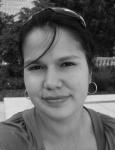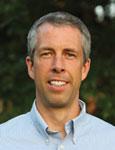As noted in last month’s blog entry “Stories in Indigenous Arts & Sciences: Return to Superior,” the Indigenous Arts and Sciences (IAS) initiative of the UW-Madison Arboretum Earth Partnership program integrates indigenous knowledge and cultural connections to reframe and reclaim science learning in tribal communities. IAS addresses the need for culturally relevant learning experiences and career exploration in the context of ecological restoration and environmental stewardship.
In Lac du Flambeau, Earth Partnership IAS offered a one-week summer 2015 institute for teachers and youth interested in ecological restoration, indigenous knowledge, and environmental stewardship. The institute was taught by Brian Gauthier, Tribal UW-Extension; Lac du Flambeau natural resources staff Gretchen Watkins and Celeste Hockings; Lac du Flambeau Ojibwe Language Program Director Leon Valliere; Patrick Goggin of UW-Extension; and Earth Partnership staff Cheryl Bauer-Armstrong, Maria Moreno, and Steve Laubach. The essay below is written by Celeste Hockings, an enrolled member of the Oglala Lakota Tribe and the Lac du Flambeau aquatic ecologist.
-Steve Laubach, UW-Madison Arboretum
______________________________________
Boozhoo indinawemaaganidog. Zhaangodebwaanikwe nindizhinikaaz. Migizi nindoodem. Waswagoning nindoonjibaa.
The English translation for this introduction is: “Hello all my relations, my name is Strong Hearted Lakota Woman, my clan is the eagle and I come from Lac du Flambeau.” My English name is Celeste Hockings, which is what I go by on a daily basis.
Forgive me, I am not fluent in Ojibwe, but I am learning.
Everything I know is what I have been taught by my elders and those that came before.
I am Oglala Lakota from the Pine Ridge Reservation but I am also Ojibwe from the Lac du Flambeau Reservation. I mostly identify with my Ojibwe way of life. I grew up on the Lac du Flambeau Reservation with my grandparents. From birth, I was immersed in the Ojibwe culture because my grandfather Ernest “Nick” Hockings was a cultural consultant who owned Waswagoning: An Indian Recreated Village (with his wife, Charlotte Hockings) and went to schools and events to teach people about our culture. My grandfather was the first person to instill in me the mindset that every living thing is part of a whole and to be more environmentally aware of what is around me. He was the one to motivate me to go to college and to focus my energy on having a good relationship with the Earth. When he learned that I was offered first an internship and then a full time job with the Lac du Flambeau Water Resources Department, he was proud. He told me that it was an important job to look after our water. He always said, “Water is going to be like gold someday.”

Another mentor came about while I was an intern with Lac du Flambeau Water Resources. I worked closely with John Brown, the Lac du Flambeau Water Technician, who taught me many things during our ventures out on the reservation. He showed me places where wild rice once grew, where there were beavers, and where deer once traveled. He showed me how to navigate the lakes on the chain. He was and still is my go-to person for questions. By his side I learned the practical lessons I needed to enter this field of work.
IAS institutes supplemented what I learned from my grandfather and John Brown. In 2013, I enjoyed many of the activities and guest speakers that IAS staff brought to our community. On the first morning of the institute, we did an activity called Ojibwe Botany Bouquet, a language-focused activity about plants. Hardly an expert on the Ojibwe language, I only know a few words, mainly numbers and animals. But when they incorporated Ojibwe plant names into the activity, it brought me closer to my culture.
My mentor John Brown spoke on Manoomin (Wild Rice) because Manoomin is important to us as a part of our culture and diet. He talked about harvesting Manoomin, and how the process was historically different than it is today—much more difficult but more of a community effort.

One of my favorite activities that we did that year was water sampling and monitoring because it was something that I was growing more familiar with in my work. I enjoyed learning how we monitor the very lakes we depend on for our way of life. With this activity, I was able to share my knowledge gained from my internships with the other participants—making a full circle from student to teacher.
Two years down the road, I had one summer and winter under my belt as a full time Aquatic Ecologist for the Lac du Flambeau Tribal Water Resources Department. In 2015, I became more involved with the IAS summer institute, not as a participant but as an instructor. I still enjoyed the same activities I did while I was an intern but I was now able to use my previous experiences and observations to pass on knowledge to new participants. I greatly enjoyed having our Ojibwe Language Department Director, Leon Valliere, as a guest presenter and elder during the week-long institute. Leon brought many lessons from our culture and he taught us Ojibwe words for different plants and other words that corresponded with our activities. He gave us insights into how our ancestors harvested plants and animals, and interacted with the environment as a whole.

During all these activities over the years, I was constantly rediscovering how much every organism is part of the whole, a part of every cycle that the Earth makes. You cannot take one organism out and expect the system to work. You need every organism—even the mosquito—to complete the system.
Ben Parker was right when he told Peter, “With great power comes great responsibility,” in one of Stan Lee’s comic strips. It is our responsibility to protect what we were given for our future generations, to ensure that they will have the best quality of life that we were fortunate to have. Organizations such as Earth Partnership IAS enhance how we teach younger generations to care for the Earth.
Miigwetch!





